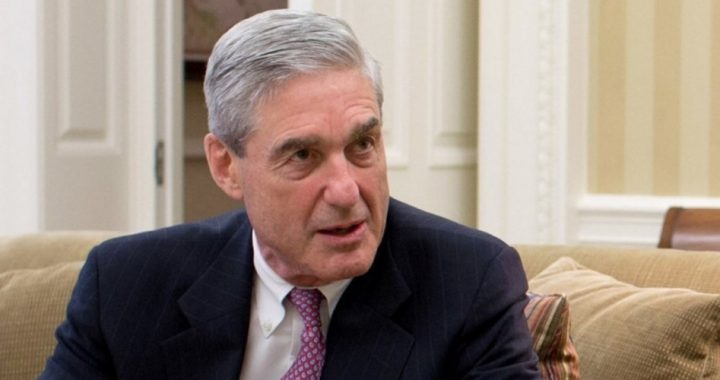
The most interesting news about Special Counsel Robert Mueller’s probe into the Trump presidential campaign’s ties to Russia isn’t, the Daily Mail reported, that Mueller has “snubbed” the president’s lawyers, refusing to answer their letter that laid down the conditions for an interview with the president.
Neither is it the news that Trump attorney Michael Cohen pleaded guilty to multiple crimes and supposedly implicated the president in a “hush-money scheme.” Nor is that Paul Manafort, Trump’s former campaign chairman, was convicted of multiple crimes. Nor is it that Trump aide George Papadopoulos, who pleaded guilty to lying to the FBI, does’t think he ought to go to jail.
The most interesting news is that a 60-year-old murder case might affect the Mueller probe. And not in a positive way — at least for Mueller and the leftists who want him to bring down Trump.
Can Secret Testimony Be Released
On Saturday, Politico reported that a “little-noticed court case stemming from the apparent murder of a Columbia University professor six decades ago could keep special counsel Robert Mueller from publishing any information about the Trump campaign and Russia that he obtains through a Washington grand jury.”
The case, of course has nothing to do with Mueller, Trump, or Russia. But it could determine whether Mueller’s grand jury proceedings go public, Politico reported on August 27:
But if a Washington appeals court set to hear the murder-related case next month [September] sides with the Justice Department and rules that judges don’t have the freedom to release grand jury information that is usually kept secret, it could throw a monkey wrench into any plans Mueller has to issue a public report on his probe’s findings, lawyers following the issue said.
And it might even keep the special counsel from sending a report to Congress, shaking Democrats’ hopes that such a document could provide the impetus for impeachment proceedings against the president.
“It is a sleeper case,” Harvard Law professor Alex Whiting said. “If the D.C. Circuit were to accept the Department of Justice’s arguments … that would have potentially enormous implications for the future of the information from the Mueller investigation. That could close out a path by which that information becomes public.”
The Murder
A lawyer and author “has spent decades investigating the disappearance of Jesus Galindez, a Columbia university professor and political activist who vanished in New York City in 1956. His [Galindez’s] body was never found, but there are indications that he was kidnapped and flown to the Dominican Republic, where he may have been killed.”
The case even inspired a film, “The Galindez File.”
The lawyer, Stuart McKeever, Politico reported, wants a look at the secret testimony to a grand jury, but the Justice Department says judges “don’t have ‘inherent authority’ to release such information under exemptions approved by Congress, which don’t apply in the Galindez case — or in many others, including potentially Mueller’s investigation.”
And in something of a further odd note about the case, the D.C. Circuit Court of Appeals in Washington, D.C., which is hearing McKeever’s case, is just two floors above Mueller’s grand jury room.
Funny thing is, Politico observed, McKeever doesn’t much care about Mueller. He wants the testimony because he thinks the federal government might have been involved in the professor’s disappearance. Galindez was a critic and opponent of Dominican Republic’s leader Rafael Trujillo, whom the United States supported. Politico reported:
McKeever says he worries that the appeals court could issue a ruling that shuts down historians, authors and journalists from being able to investigate cases that grand juries dropped or didn’t finish. Eight prominent historians filed a brief backing his position.
Evidence We Haven’t Seen
Another aspect of the case, Mike Allen wrote for Axios.com, is the evidence that Mueller has collected but no one has seen. But the grand jury report about Trump isn’t the only thing Mueller has that he could release.
“With speculation hot among the president’s legal team that today could be a day for action by Bob Mueller (last working day before Labor Day),” Allen wrote, “remember all the evidence the special counsel has — or could have — that we haven’t seen.”
Included in the “evidence we’ve yet to see,” Allen wrote, are Trump’s tax returns and bank records, internal Trump organization records, cellphone records (metadata showing calls placed/received and duration) related to the Trump Tower meeting, and White House and campaign e-mails and text messages.
Allen reported that “Trump’s legal team said in January that the White House had produced more than 20,000 pages of materials, and the campaign had provided more than 1.4 million pages.”
Even more “evidence” might be contained in “National Enquirer files revealed by … [the] N.Y. Times: Trump and Cohen ‘devised a plan to buy up all the dirt on Mr. Trump that the National Enquirer and its parent company had collected on him, dating back to the 1980s.’”
Photo of Robert Mueller: White House



